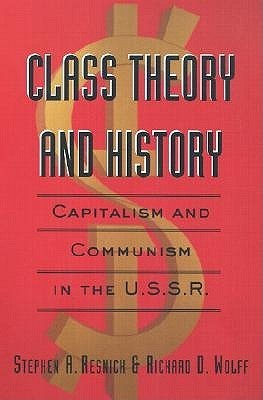A great, in-depth Marxian analysis of the USSR and its class contradictions. I read "Socialism Betrayed" by Roger Keeran and Thomas Kenny before reading this and found this book to be a great compliment to it, exploring the deeper, economic details behind the problems only briefly outlined in "Socialism Betrayed" (even going over issues which that book hadn't even mentioned, such as the 1923 "Scissors Crisis").
More orthodox Marxists may not like this book, since Richard Wolff and Stephen Resnick conduct their analysis using a very different theory of class than the more "classical" Marxist theory of class as defined in terms of property-relations (who does and doesn't own means of production). Under this different theory of class, still based in Marx, class is understood instead in terms of relation to surplus (who produces, appropriates and/or distributes the surplus within a society determines their class). Wolff and Resnick also come to the conclusion that the hegemonic (main or "official") class structure of the USSR wasn't actually socialist, but was rather state capitalist (which is why, they argue, the swing back into private capitalism after the USSR's collapse never came with a violent revolution, since the USSR had never left capitalism to begin with).
Whether or not one agrees with Wolff's and Resnick's definition of class or their conclusion about the overall class structure of the USSR's economy, I think their analysis is indispensable since it brings much greater clarity to the problems the USSR faced and the contradictions that were at the heart of them.

